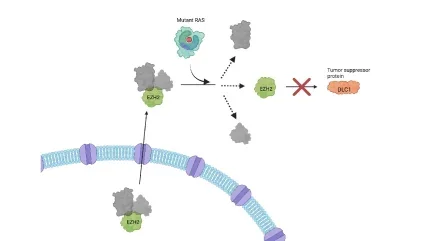
Researchers at the National Institutes of Health (NIH) and its affiliates have discovered a new mechanism by which RAS genes, frequently mutated in cancer, promote tumour growth.
According to a recently published study, mutations in RAS genes were found to drive tumour growth beyond their commonly known role in signalling at the cell surface.
Mutant RAS genes would launch a series of events involving the transport of specific nuclear proteins that contribute to uncontrolled tumour growth.
NIH National Cancer Institute (NCI) deputy director and study author Douglas Lowy said: “This is the first study to show that mutated RAS genes can promote cancer in an entirely new way.
“The finding of the additional role for RAS proteins has exciting implications for improving treatment. New treatment combinations could one day be developed that take this new role for RAS into consideration.”
According to NCI, RAS genes are the second most frequently mutated genes in cancer, and mutant RAS proteins play a key role in some of the life-threatening cancers.
They drive all pancreatic cancers, half of colorectal cancers, and one-third of lung cancers.
The drugs that prevent mutant RAS proteins have been available for only a few years and have been approved by the Food and Drug Administration to treat lung cancer and sarcoma.
Around 35 years ago, a group led by Dr Lowy contributed to the early studies that identified RAS as a cancer-causing gene and showed how it promotes tumour growth.
In the NIH study, the team found that mutant RAS is directly responsible for releasing a nuclear protein EZH2 from a complex transported from the nucleus to the cytoplasm.
EZH2 works to facilitate the breakdown of a tumour suppressor protein, dubbed DLC1, blocking mutant RAS stopped EZH2 from being released, restoring the activity of DLC1.
The study also found that mutant RAS proteins deliver the same function in other cancer types, confirming the mechanism’s consistency in cancers with mutated RAS genes.






